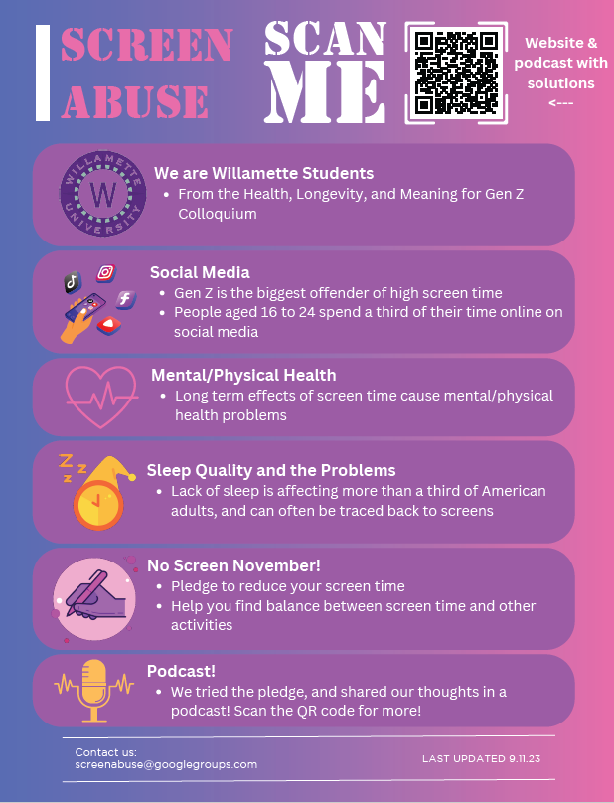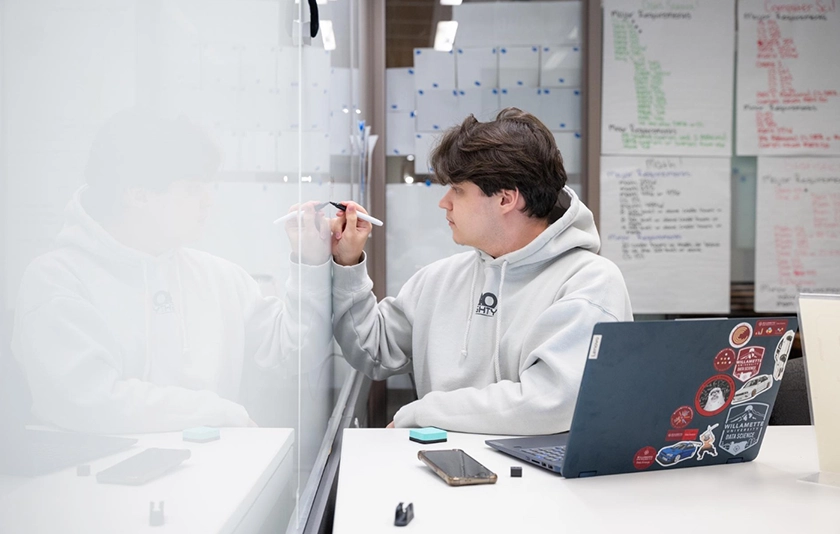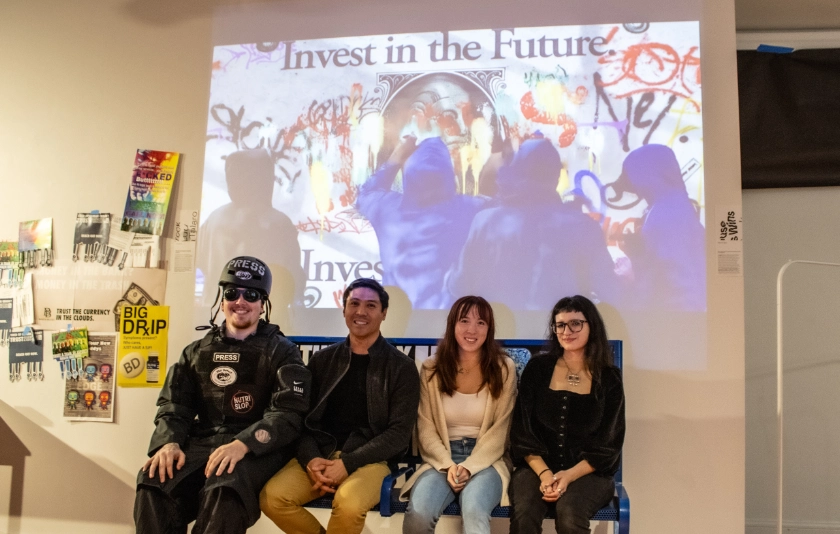 First-year students in Associate Professor Brandi Row Lazzarini’s “Health, Longevity, and Meaning for Gen Z” course investigated what their future life stages might look like — and what steps they can take to improve them now. Among other issues, the students examined how the overuse of social media and technology affects mental health. Their final projects aimed to help their peers both reduce their reliance on technology and improve social interaction.
First-year students in Associate Professor Brandi Row Lazzarini’s “Health, Longevity, and Meaning for Gen Z” course investigated what their future life stages might look like — and what steps they can take to improve them now. Among other issues, the students examined how the overuse of social media and technology affects mental health. Their final projects aimed to help their peers both reduce their reliance on technology and improve social interaction.
Lazzarini’s class was part of Willamette’s College Colloquium program, a first-semester course that invites students to pursue their intellectual passions in small intensive classes. “Students focus on critically examining information like texts and identifying arguments, questioning assumptions, assessing evidence — really thinking critically about what they’re reading and what information they’re consuming,” says Lazzarini.
Colloquium courses are a unique way for first-year students at Willamette’s Salem undergraduate college to meet with others who may share a similar interest. The courses are not connected to a particular major, so students across many areas of study are able to work together and engage in thoughtful discussions over the course of the semester.
In Lazzarini’s course, students collaborated on posters with QR codes, websites, podcasts, and brochures covering such topics as reducing screen time, prioritizing in-person interactions, connecting with resources, and recognizing the connection between social media and eating disorders.
Lazzarini’s students took the opportunity to translate their classwork into positive change in their own lives. “The students really wanted to help peers with their mental health experiences and awareness,” says Lazzarini. “Students in one group pledged to adjust their own screen time, then shared the benefits they felt in terms of their sleep, health, and academic performance.”
One team’s website and podcast invites students to pledge to reduce screen time and enjoy the benefits of disconnecting from technology. “My group decided to focus on screen time as a whole — including phones, computers, gaming systems, television, or any other device — and how the majority of the U.S. has an average screen time of four hours over the suggested daily amount [of around two hours],” says Caleb Graham BA’27. “Gen Z holds an extra two hours on top of that.”

“The project offered the chance for our group to try out the challenge of limiting screen time in our own lives,” continues Graham. “I got better sleep and was more engaged in whatever activity I was doing,” he says.
Another group tackled students’ use of phones during mealtimes and how this affects their health. The resulting pamphlets informed students that interacting with others relieves more stress than online interactions, and suggested options for socializing. “Though we all had experience with this issue, the research behind the project provided compelling evidence for the detrimental impacts of phone use on social life,” says Maddy Maes BA’27. “Our research found that people who used their phones during meals with others (or had dining companions who did) felt less connected.”
“I don’t know how much of the information we learned was surprising,” says Graham, “but it always shocks me to hear the statistics of how much Gen Zers are on their phones and other screens each day — about nine hours.”


